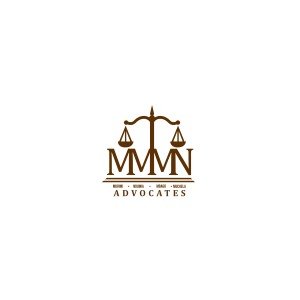Best Bad Faith Insurance Lawyers in Nakuru
Share your needs with us, get contacted by law firms.
Free. Takes 2 min.
List of the best lawyers in Nakuru, Kenya
About Bad Faith Insurance Law in Nakuru, Kenya
Bad Faith Insurance refers to the unlawful refusal, denial, or delay in paying legitimate claims by insurance companies. In Nakuru, Kenya, Bad Faith Insurance falls under the purview of insurance laws and regulations set by the Insurance Regulatory Authority (IRA) of Kenya.
Why You May Need a Lawyer
You may need a lawyer in the following situations:
- If your insurance claim has been unreasonably denied or underpaid
- If the insurance company is delaying the claim process without valid reasons
- If the insurance company is not acting in good faith during the claims process
- If you need assistance with negotiation or mediation with the insurance company
- If you want to pursue legal action against the insurance company for bad faith
Local Laws Overview
Key aspects of local laws related to Bad Faith Insurance in Nakuru, Kenya include:
- The Insurance Act: Governs the establishment, regulation, and supervision of insurance companies in Kenya.
- The Insurance Regulatory Authority Act: Establishes the IRA and outlines its functions and powers.
- The Code of Conduct for Insurance Agents and Brokers: Sets standards of conduct for agents and brokers, ensuring fair treatment of clients.
Frequently Asked Questions
Q: What should I do if my insurance claim is unreasonably denied?
A: If your claim is unreasonably denied, gather all relevant documents and evidence and consult with a lawyer specializing in bad faith insurance. They can guide you on the best course of action to take.
Q: How long can an insurance company delay the claim process?
A: Insurance companies should process claims promptly and efficiently. If the claim process is unreasonably delayed without valid reasons, it may be considered bad faith. Consult with a lawyer to understand your rights and legal options.
Q: What is the role of the Insurance Regulatory Authority (IRA) in handling bad faith insurance cases?
A: The IRA is responsible for regulating and supervising the insurance industry in Kenya. While they may not directly handle individual bad faith insurance cases, they play a vital role in enforcing fair practices and ensuring compliance with insurance laws by insurance companies.
Q: Can I file a complaint against the insurance company for bad faith?
A: Yes, you can file a complaint with the IRA if you believe that the insurance company has acted in bad faith. Consult with a lawyer to understand the complaint filing process and seek legal advice on how to strengthen your case.
Q: Is there a time limit for taking legal action against an insurance company for bad faith?
A: Yes, there is a time limit, known as the statute of limitations, for taking legal action against an insurance company for bad faith. It is advisable to consult with a lawyer promptly to determine the applicable time limit in your case and initiate legal proceedings accordingly.
Additional Resources
Here are some additional resources that can provide helpful information:
- Insurance Regulatory Authority of Kenya (IRA) - www.ira.go.ke
- Laws of Kenya - www.kenyalaw.org
- Federation of Kenya Insurers (FKI) - www.federationofkenyainsurers.org
Next Steps
If you require legal assistance in a Bad Faith Insurance matter, consider taking the following steps:
- Contact a lawyer specializing in Bad Faith Insurance cases in Nakuru, Kenya.
- Arrange a consultation with the lawyer to discuss your situation.
- Provide all relevant documents and information related to your insurance claim.
- Follow the lawyer's guidance on how to proceed with your case, whether it involves negotiation, mediation, or legal action.
- Maintain open communication with your lawyer and provide any additional information or documentation they may require.
Lawzana helps you find the best lawyers and law firms in Nakuru through a curated and pre-screened list of qualified legal professionals. Our platform offers rankings and detailed profiles of attorneys and law firms, allowing you to compare based on practice areas, including Bad Faith Insurance, experience, and client feedback.
Each profile includes a description of the firm's areas of practice, client reviews, team members and partners, year of establishment, spoken languages, office locations, contact information, social media presence, and any published articles or resources. Most firms on our platform speak English and are experienced in both local and international legal matters.
Get a quote from top-rated law firms in Nakuru, Kenya — quickly, securely, and without unnecessary hassle.
Disclaimer:
The information provided on this page is for general informational purposes only and does not constitute legal advice. While we strive to ensure the accuracy and relevance of the content, legal information may change over time, and interpretations of the law can vary. You should always consult with a qualified legal professional for advice specific to your situation.
We disclaim all liability for actions taken or not taken based on the content of this page. If you believe any information is incorrect or outdated, please contact us, and we will review and update it where appropriate.








